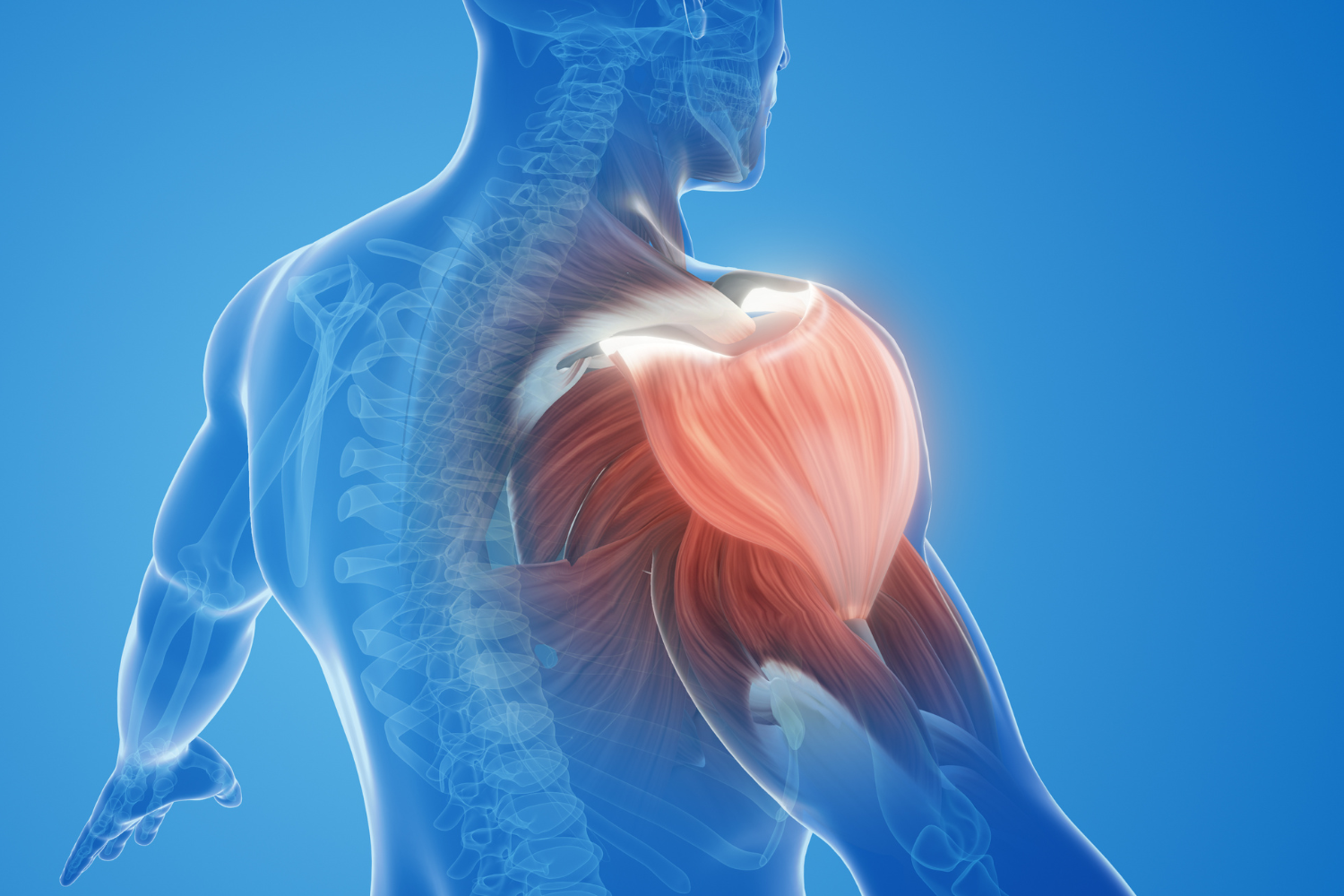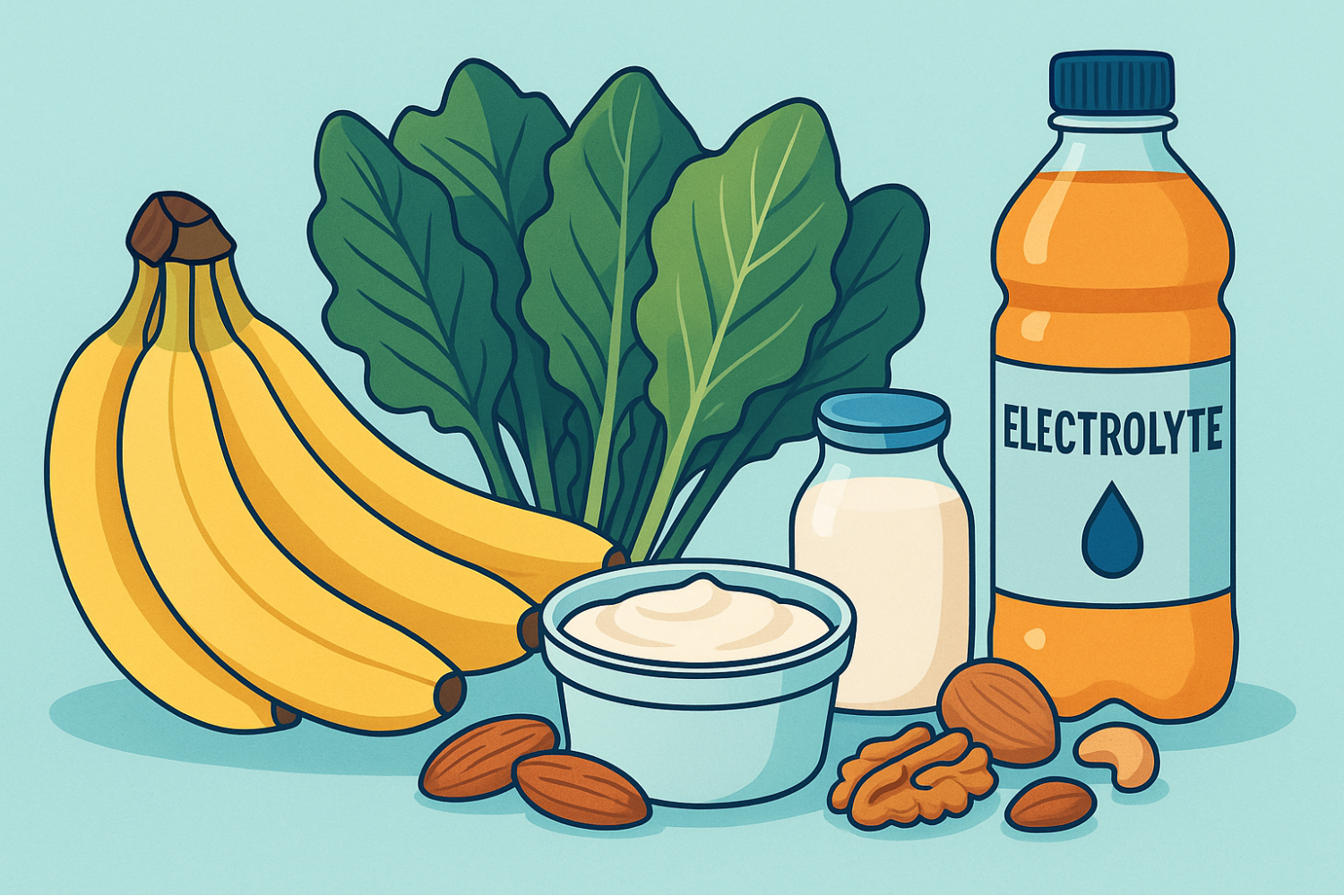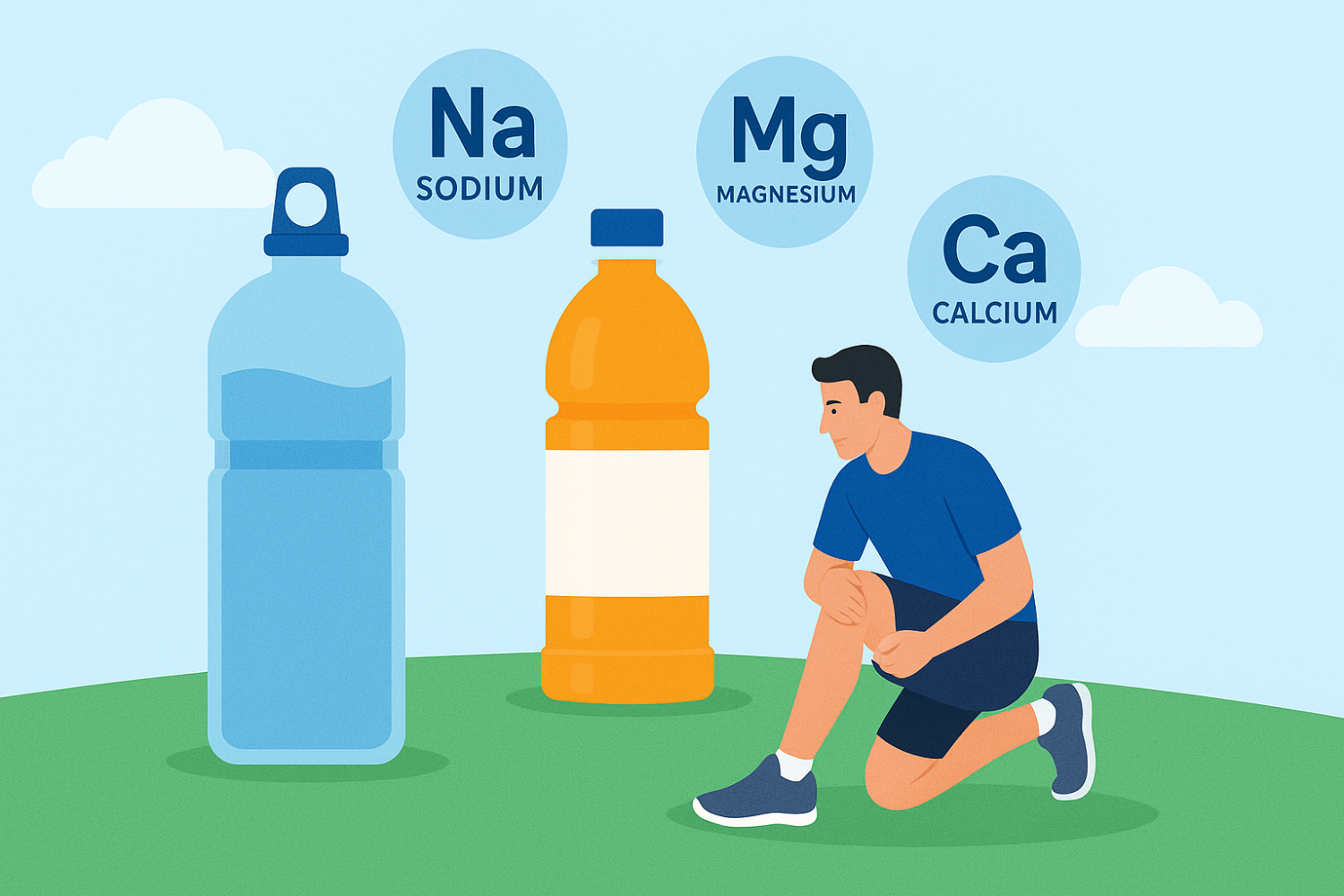Recovery often feels tougher when electrolytes run low because these essential minerals help keep fluid balance steady, power muscle contractions, and support muscle relaxation after exercise. Electrolytes like sodium, potassium, magnesium, and calcium play a vital role in muscle recovery by helping regulate hydration and nerve function, both of which affect how quickly muscles bounce back. When electrolyte balance is off, signs such as muscle cramps, fatigue, and lingering soreness may appear, signaling it’s time to pay attention to replenishment.
What Are Electrolytes and Why Are They Important for Muscles?
Electrolytes are essential minerals that carry an electric charge in the body and play a vital role in muscle function. Sodium and potassium help regulate fluid balance and nerve impulses, while magnesium and calcium support muscle contractions and muscle relaxation.
Together, these key electrolytes keep hydration levels steady, help support hydration during intense exercise by contributing to fluid balance, and make sure muscles have the proper balance needed for strength, movement, and recovery.

What Happens to Your Muscles When Electrolytes Run Low?
When electrolyte levels drop, your body’s ability to recover and maintain normal muscle function is affected. The recovery process slows, and physical activity may feel harder than usual.
-
Muscle cramps and spasms: Low sodium or potassium can trigger painful, sudden contractions.
-
Fatigue and delayed recovery: Electrolyte depletion can contribute to feelings of fatigue and may impact how the body responds after exercise.
-
Dizziness or lightheadedness after a workout: Electrolyte imbalances can affect fluid balance and brain function.
-
Connection between dehydration and electrolyte loss: Not replacing electrolytes lost through sweat may lead to symptoms like fatigue or muscle discomfort after exercise.

Key Electrolytes That Support Muscle Recovery
Electrolytes for muscle recovery work together to keep hydration steady, prevent fatigue, and support muscle repair after exercise. Each mineral plays a unique role in keeping the recovery process on track.
Sodium — Helps Maintain Fluid Balance
Sodium is one of the most essential electrolytes for maintaining fluid balance and replacing what’s lost through sweat. It helps with fluid replacement, supports nerve function, and assists the body during intense exercise by keeping hydration levels stable. Replenishing sodium after workouts reduces the chance of electrolyte imbalances that slow recovery.
Potassium — Supports Muscle Function and Cramp Control
Potassium works closely with sodium to regulate fluid balance and is especially important for muscle contractions. Adequate potassium intake supports muscle function, reduces the risk of muscle cramps, and helps with proper hydration. A steady supply of potassium keeps energy levels consistent and supports muscle recovery after physical activity.
Magnesium — Important for Muscle Relaxation
Magnesium is critical for muscle relaxation, helping prevent tightness that can follow a workout session. It supports muscle and nerve function, which can be affected during dehydration, but it does not directly prevent dehydration; instead, it plays a key role in reducing muscle soreness after sweat loss. Adequate magnesium helps the body stay hydrated and promotes effective recovery.
Calcium — Essential for Muscle Contraction
Calcium not only supports bone health but also drives muscle contractions and overall muscle mass development. During physical activity, calcium helps muscles respond to nerve signals and supports muscle contractions, which are essential for effective movement. Keeping calcium levels balanced is essential for optimal performance and overall health.

How to Replenish Electrolytes After Exercise
Electrolyte intake after workouts is necessary for proper hydration and recovery. Different sources can help replace electrolytes lost through sweat and support muscle repair.
Foods Rich in Electrolytes
Eating whole foods provides a balanced mix of essential electrolytes that support muscle recovery.
-
Bananas: High in potassium to support muscle function.
-
Leafy greens: Provide magnesium and calcium for hydration and relaxation.
-
Yogurt: Supplies calcium and potassium for post-workout recovery.
-
Nuts: Rich in magnesium to support muscle recovery and prevent fatigue.
Electrolyte Drinks and Powders
Electrolyte drinks and powders are convenient options when sweat glands release large amounts of sodium and potassium during workouts. LyteLine products, such as LyteShow, contain electrolytes like sodium and potassium, which help maintain fluid balance and replace what’s lost during intense activity. These electrolyte drinks support hydration and provide key minerals that contribute to post-exercise electrolyte replenishment.
When Water Alone Isn’t Enough
Drinking water is important, but it may not restore enough electrolytes after intense exercise, long workout sessions, or training in humid conditions. In these scenarios, fluid balance shifts quickly, and the body’s ability to recover suffers. Sports drinks or an oral rehydration solution may be necessary to prevent dehydration, replace essential electrolytes, and support muscle recovery during post-workout recovery.

Tips for Balancing Electrolytes for Faster Recovery
Balancing electrolyte intake is key to effective recovery and maintaining fluid balance after exercise. Simple adjustments can make a big difference in how quickly your body bounces back.
-
Timing: Replenish electrolytes soon after a workout session, especially when sweat loss is high.
-
Pairing with meals: Combine electrolytes with carbs and protein in recovery meals to restore energy and support muscle repair.
-
Avoiding overconsumption: Keep electrolyte levels within safe ranges to prevent excessive amounts from disrupting hydration needs.
-
Practical advice: Pay attention to signs like fatigue, muscle cramps, or dizziness as cues your body may need more electrolytes.
Supporting Your Body with the Right Electrolytes
Electrolytes play a vital role in maintaining fluid balance, powering muscle recovery, and keeping energy steady after exercise. Supporting muscle function with sodium, potassium, magnesium, and calcium helps reduce fatigue and improve post-workout recovery. If you’re looking for convenient ways to support hydration and electrolyte balance, LytePow can help maintain your recovery routine and keep you on track for optimal performance.
Frequently Asked Questions
What are the first signs of low electrolytes after a workout?
Muscle cramps, fatigue, and dizziness are common early signals.
Which electrolyte is most important for preventing muscle cramps?
Potassium is most important, though sodium and magnesium also support muscle function.
Can I just drink water instead of electrolyte drinks?
Water helps, but electrolyte drinks are better after intense exercise or heavy sweat loss.
How much sodium, potassium, and magnesium do I need daily?
Adults generally need about 1,500–2,300 mg of sodium, 2,600–3,400 mg of potassium, and 300–400 mg of magnesium.
Are electrolyte supplements safe for everyday use?
Electrolyte supplements can be used daily when taken within recommended amounts. Always follow usage instructions and consult a healthcare provider if unsure.
References
-
American College of Sports Medicine, Sawka, M. N., Burke, L. M., Eichner, E. R., Maughan, R. J., Montain, S. J., & Stachenfeld, N. S. (2007). American College of Sports Medicine position stand. Exercise and fluid replacement. Medicine and science in sports and exercise, 39(2), 377–390. https://doi.org/10.1249/mss.0b013e31802ca597
-
Gennari F. J. (1998). Hypokalemia. The New England journal of medicine, 339(7), 451–458. https://doi.org/10.1056/NEJM199808133390707
-
Murray B. (2007). Hydration and physical performance. Journal of the American College of Nutrition, 26(5 Suppl), 542S–548S. https://doi.org/10.1080/07315724.2007.10719656
-
Shirreffs, S. M., & Sawka, M. N. (2011). Fluid and electrolyte needs for training, competition, and recovery. Journal of sports sciences, 29 Suppl 1, S39–S46. https://doi.org/10.1080/02640414.2011.614269
-
Verbalis J. G. (2003). Disorders of body water homeostasis. Best practice & research. Clinical endocrinology & metabolism, 17(4), 471–503. https://doi.org/10.1016/s1521-690x(03)00049-6
-
Westerblad, H., Allen, D. G., & Lännergren, J. (2002). Muscle fatigue: lactic acid or inorganic phosphate the major cause?. News in physiological sciences : an international journal of physiology produced jointly by the International Union of Physiological Sciences and the American Physiological Society, 17, 17–21. https://doi.org/10.1152/physiologyonline.2002.17.1.17



